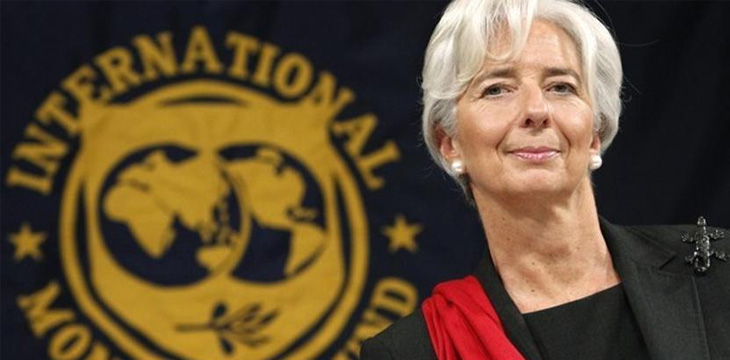|
Getting your Trinity Audio player ready...
|
Christine Lagarde echoes the Dutch finance minister’s statement that cryptocurrency regulation warrants international cooperation.
International Monetary Fund (IMF) chief Christine Lagarde has been an active observer of the blockchain industry. Throughout the past year, she has been hailing cryptocurrencies as something that should not be dismissed, saying they could give traditional banks and currencies a run for their money. But while financial tech innovation has received her blessing, she is not sitting back on its dangers either.
In a blog post titled “Addressing the Dark Side of the Crypto World” on the IMF website, Lagarde says that we can actually use the same technology criminals are taking advantage of against them.
“Indeed, the same innovations that power crypto-assets can also help us regulate them. To put it another way, we can fight fire with fire,” she wrote.
“Regulatory technology and supervisory technology can help shut criminals out of the crypto world. More broadly, we are seeing crypto-asset exchanges in some countries that are subject to know-your-customer requirements,” she added.
She says that it will take some time to refine and implement mechanisms to combat illegal activities using blockchain technology, but that combining it with other technological advancements such as biometrics, artificial intelligence, and cryptography can help purge “pollution from the crypto-assets system.”
She echoes the Dutch finance minister’s recent call for international cooperation on regulating cryptocurrencies—Wopke Hoekstra wrote a letter saying regulation must be built with an international approach, otherwise enforcement will be impossible.
Similarly, Lagarde wrote: “no country can handle this challenge alone.”
“To be truly effective, all these efforts require close international cooperation. Since crypto-assets know no borders, the framework to regulate them must be global as well,” she wrote, citing the case of darknet marketplace AlphaBay as a shutdown that was successful because of international cooperation.
“Countries will have to decide collectively that this path is worth pursuing. Promisingly, the Group of Twenty (G-20) has agreed to put crypto-assets on the agenda of its November 2018 summit in Argentina,” she added.
While some are easily scared whenever threats of regulation are being thrown around, the truth is this is a good thing for cryptocurrencies and blockchain overall. First, this guarantees that there will be no outright ban. Second, this purges out ill-intentioned groups from the space, which in turn, fosters mass adoption as fears are eradicated by comprehensive protection. The only thing we need to look out for is heavy-handed and oppressive regulation, although this is relative to who’s looking and what activities will be hindered, if any. On this end, we have yet to see how regulators handle the situation—and that may put us on the edge of our seats for a while.

 02-18-2026
02-18-2026 




